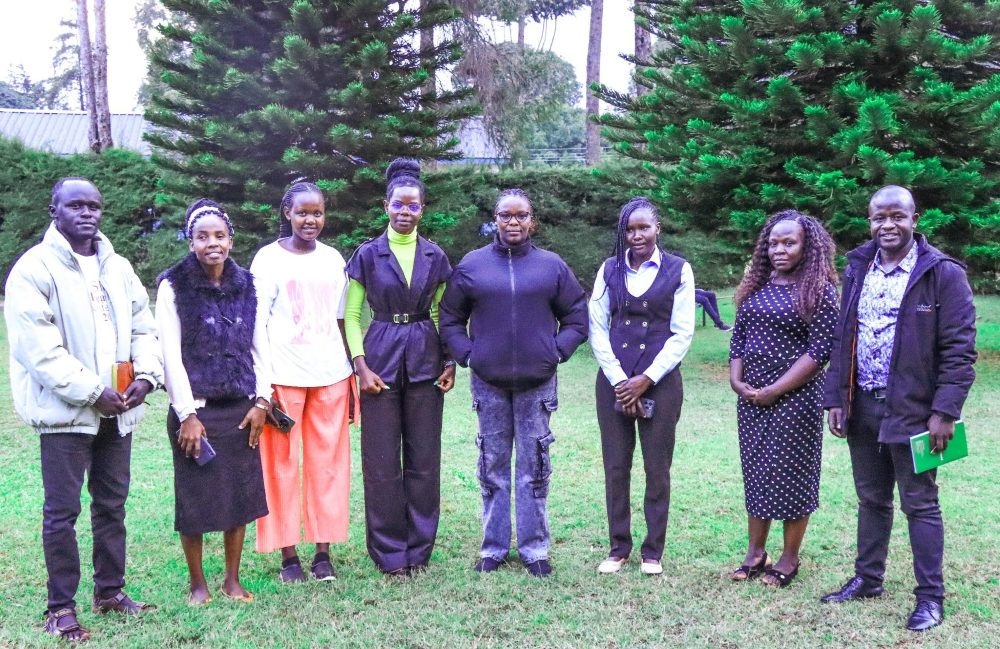A severe hunger crisis in Mwatate Constituency, Taita Taveta County has led to alarming cases of students collapsing in classrooms and mass school dropouts, prompting urgent government intervention to revive the school feeding program.
Speaking on Tuesday during the relief food distribution exercise in the Constituency, Mwatate MP Canon Peter Shake revealed that medical examinations of collapsed students consistently show no underlying diseases, with children recovering immediately after being given food.
“There have been several cases in schools in the constituency where students collapse in schools and when taken to hospital and tests done, no diseases are found. When they are given milk, porridge or any food, they wake up and are okay, meaning it is hunger,” Shake disclosed during a government relief food distribution exercise.
The hunger-induced health crisis has created a devastating impact on education outcomes in the constituency, with dropout rates soaring as children struggle to concentrate on learning while battling malnutrition.
“Due to hunger, the dropout rate in schools is high because children cannot be in school in empty stomach,” the MP explained, painting a grim picture of how food insecurity is undermining educational progress in the region.
The constituency had previously initiated a school feeding program to address the crisis, but sustainability challenges forced its suspension, leaving thousands of students vulnerable to hunger-related learning disruptions.
“We started the school feeding program but we were not able to sustain it and that is why I brought the CS here so that he can see and act,” Shake said, referring to his invitation to Cabinet Secretary for Public Service, Human Capital Development and Special Programs Geoffrey Ruku.
ALSO READ:
Health DG sounds alarm on worker shortage, urges urgent training drive
The timing of the education crisis coincides with prolonged drought conditions that have devastated the region for six consecutive seasons, making it impossible for families to provide adequate nutrition for their school-going children.
“The residents of Mwatate go through hard times because we have gone for about six seasons without proper harvesting,” Shake noted, explaining how agricultural failures have directly translated into classroom emergencies.
In response to the education crisis, CS Ruku assured parents and education stakeholders that the government is committed to ensuring school feeding programs are adequately supported and sustained.
“You are in safe hands of our President and we shall ensure that food for our children in schools is available,” Ruku promised during the relief distribution event that saw 300 bags of food distributed to needy families.
The Cabinet Secretary emphasized that President William Ruto’s administration recognizes the direct link between food security and educational outcomes, promising comprehensive interventions to address both immediate and long-term challenges.
“The President, through the special programs department, will ensure that no citizen in the republic will sleep hungry or die because of lack of food,” Ruku stated.
The education sector challenges in Mwatate are compounded by the constituency’s geographical characteristics, with over 70 percent of the area classified as dry land, creating persistent poverty that affects families’ ability to support their children’s education.
The situation represents a broader challenge facing Kenya’s arid and semi-arid regions, where Taita Taveta County is among 23 areas identified by the government as requiring urgent intervention to prevent families and education systems from collapsing due to drought-related food insecurity.
ALSO READ:
Mombasa teachers demand union leadership coup over pay dispute
Education experts have long warned that hunger remains one of the most significant barriers to learning, with malnourished children showing reduced cognitive function, poor concentration, and increased absenteeism, which the area MP said are all factors evident in the Mwatate crisis.
The government’s promise to double food relief distribution in the coming two weeks is expected to provide immediate relief to affected families, potentially allowing children who are now in their holidays to get food and be able to return to classrooms and focus on learning rather than survival when schools open.
However, the sustainability of educational interventions will require long-term solutions which would include addressing water scarcity, agricultural productivity, and economic empowerment in the constituency.
MP Shake has specifically requested the drilling of at least four boreholes to provide sustainable water solutions that could support both agricultural activities and school operations, addressing root causes of the education crisis.
The revival of the school feeding program is seen as critical not only for addressing immediate hunger but also for encouraging parents to keep their children in school despite economic hardships.
ALSO READ:
Why teachers should accommodate intersex children in our schools
Education stakeholders in the region are calling for coordinated efforts between the ministries of Education and Public Service to ensure that emergency school feeding interventions are implemented swiftly and sustained over time.
Lenox Mshila, the Taita Taveta Kenya National Union of Teachers (KNUT) Secretary General confirmed that there have been cases of students’ dropouts as well as cases of them collapsing in classes, not only in Mwatate Subcounty but across the county, calling for urgent interventions to ensure students stay in schools and are learn.
“No child can learn on an empty stomach. Hunger is not just a humanitarian crisis, it is an educational emergency,” said Mshila.
Mshila added stating that, “Let us not wait until we lose innocent lives. The government must prioritize the dignity and health of every child in Kenya by ensuring that no learner goes hungry while pursuing education.”
The Mwatate education crisis serves as a stark reminder of how climate change and food insecurity directly threaten Kenya’s educational goals, particularly in marginalized communities where children’s right to education is compromised by their basic survival needs.
By Michael Oduor
oduormichael2021@gmail.com
You can also follow our social media pages on Twitter: Education News KE and Facebook: Education News Newspaper for timely updates.
>>> Click here to stay up-to-date with trending regional stories
>>> Click here to read more informed opinions on the country’s education landscape






